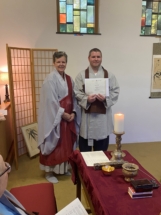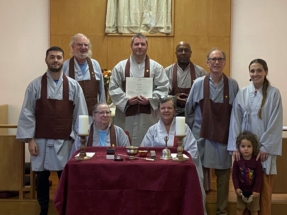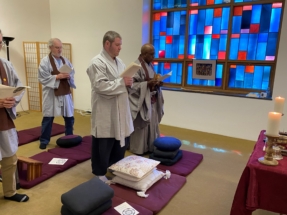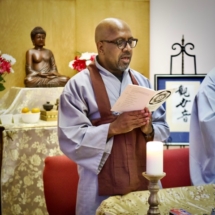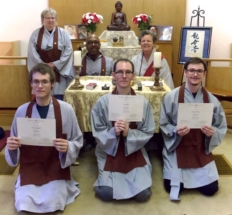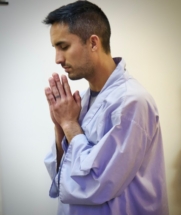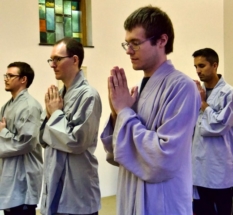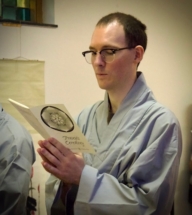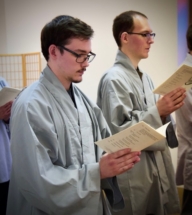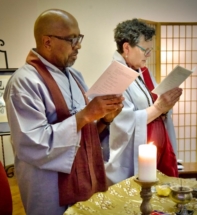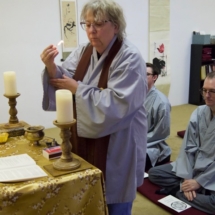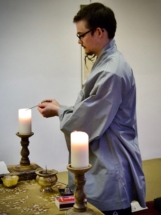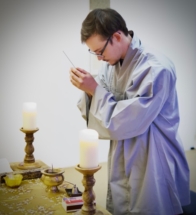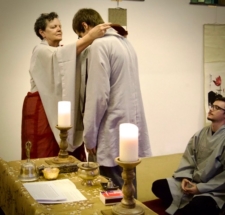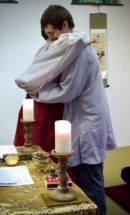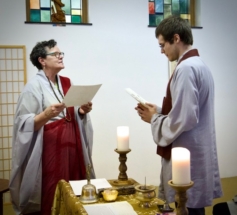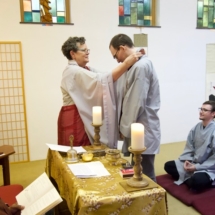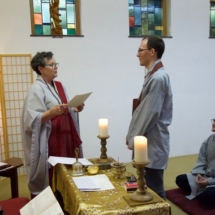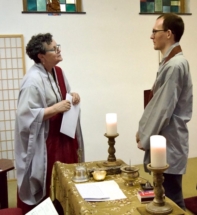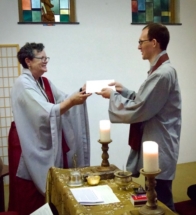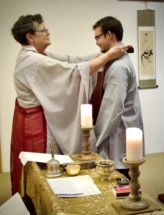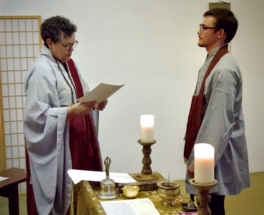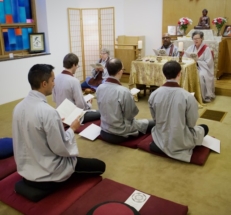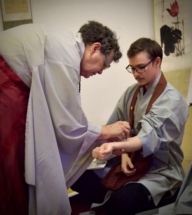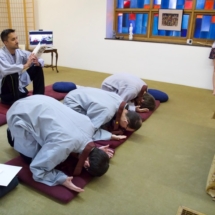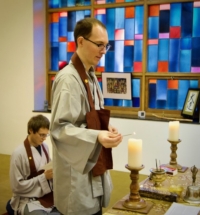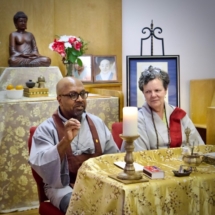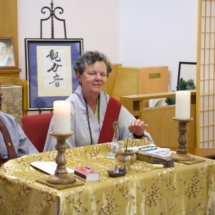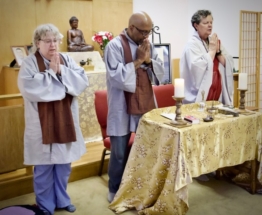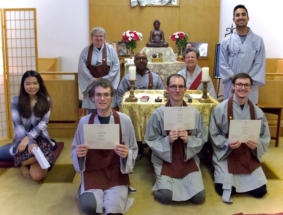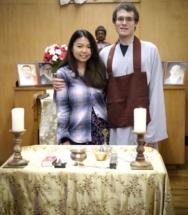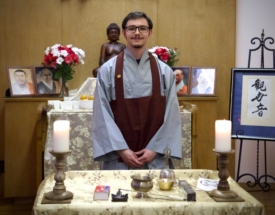As the Buddha lay dying, he gave last instructions to his followers: “At this time, in the middle of the night, all was quiet, without any sound. Then, for the sake of all of his disciples, he spoke on the essentials of the Dharma: All of you monks! After my Nirvana, you should revere and honor the precepts, the standards of conduct. This is like finding a light in the darkness, or like a poor person obtaining a treasure. You should know that they are your great teacher, and are not different from my actual presence in the world” Why would the Buddha say the precepts should be honored – that the standard of conduct was of utmost importance?
Buddhism teaches that there are 5 strong human desires: food, fame, wealth, sex, and sleep. All our lives we go chasing after what feels good to us whether it’s getting a good job or having a wonderful lover or eating really good food. All these desires create what we call “like and dislike mind.” This mind is the mind that creates all the conflict in our heart and in our world. It stems from our inability to see that chasing after our desires obscures our innate compassion and openness. Instead, all these desires have a basis in selfishness and using others to get what we want. You want a gourmet meal? Something has to die for you to do that. You want fame or wealth? One steps on the shoulders of others in order to climb above the crowd. You want to sleep in every morning? Who makes it possible for you to do that?
The first five precepts are 1) I vow to abstain from taking life; 2) I vow to abstain from taking things not given; 3) I vow to abstain from misconduct done in lust; 4) I vow to abstain from lying; 5) I vow to abstain from intoxicants taken to induce heedlessness. All of these precepts are meant to set aside a life that is “only for I, my, me” and to begin living a life that sees our great interdependence. It means living a life where everything and everyone around you is taken in account and honored. It means living a life of integrity, reverence for life, and compassion for all beings – including yourself. This is why the Buddha said that the precepts were no different than his actual presence in the world.
Practicing the precepts does not mean you hold tightly to each one. One practices the precepts with wisdom and sensitivity to each situation. We often use the analogy of standing at a crossroads and a rabbit runs by and goes down the left path. A hunter comes by and asks if you’ve seen the rabbit. If you lie, you’ve saved the rabbit, but perhaps you perceive that the hunter is hungry and needs to feed himself and his family, then telling the truth means the death of the rabbit, but compassion for the hunter and his needs. As we practice meditation and look deeply into this Great Love, Great Compassion, and the Great Bodhisattva Way, then wisdom arises and we can use the precepts freely to help others.
What does it mean to “take the precepts” in our precepts ceremony? Taking the precepts is an overarching vow to commit to understanding your true nature and bringing that light into the world. When we go through this ceremony, we are vowing to make selflessness, generosity, kindness, and compassion the basis of our lives, rather than the 5 desires. The ceremony brings the preceptors into community with others who have also realized that these 5 desires cannot help us or the world and that entering the way of the Buddha brings ultimate happiness.
